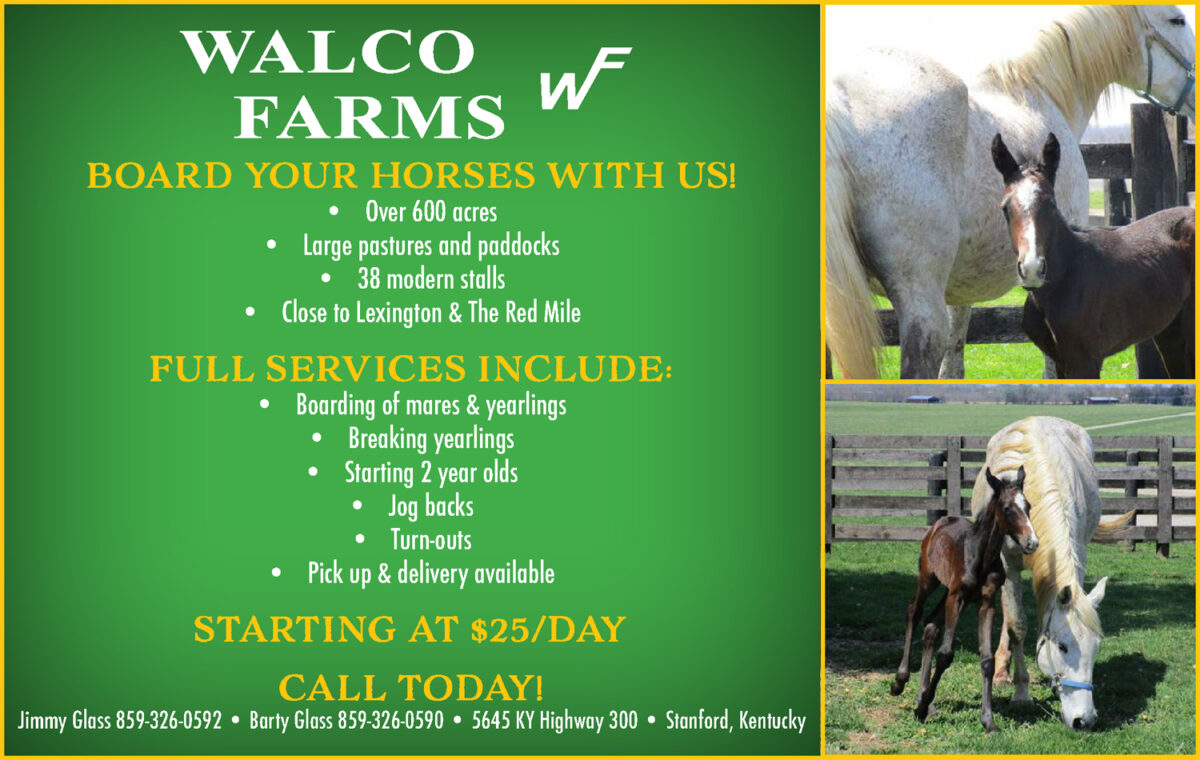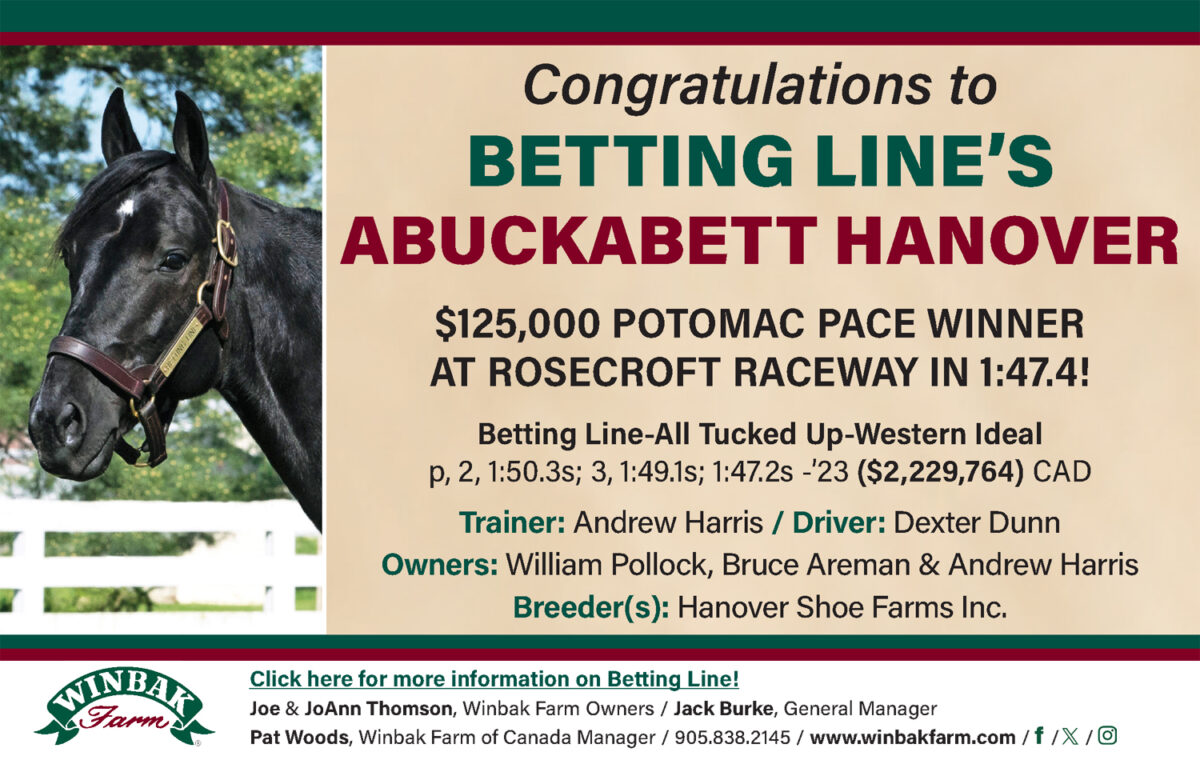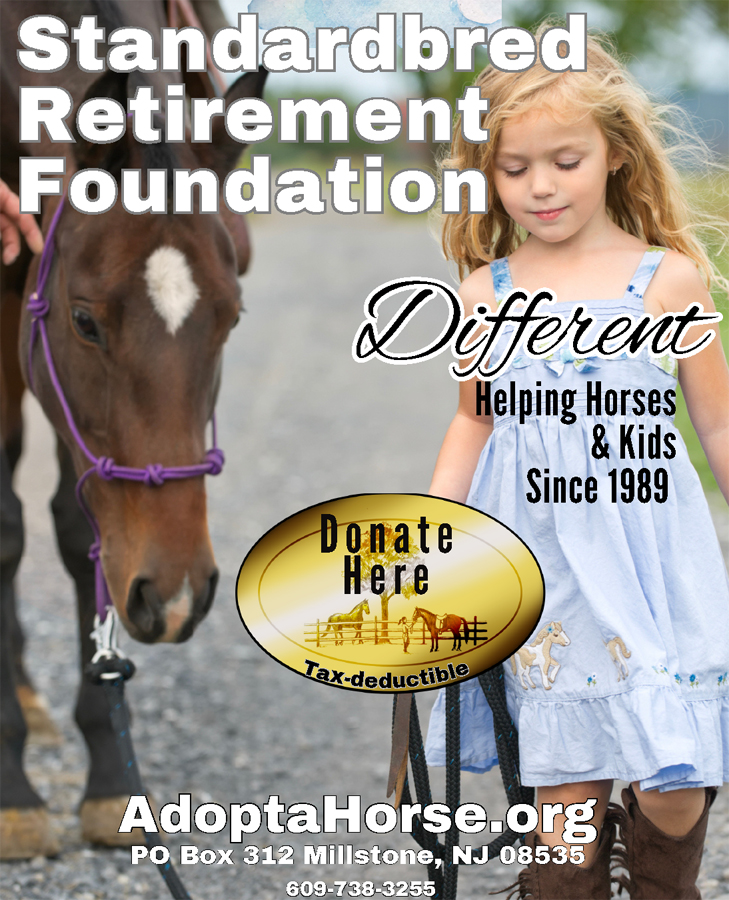What if it all goes wrong? (Part 3)
by Trey Nosrac
“The question is laid upon the table. Where does the sport of harness horse racing go if money dries up? How’s that? Do I sound like a congressman?”
He answered, “No, you sound like an idiot. During your last filibuster, you claimed you would find a model in case the horseracing business collapsed. Did you find one?”
“Possibly. I will give you some clues. See if you can guess the sport.”
After a dramatic eye roll, he asked, “Can’t you just tell me?”
“Nah, it’s too strange to hit you all at once. I need to sneak up, or you’ll laugh in my face. Here are three clues – The sport is expensive to play, the participants are avid, and the sport does not depend on gambling.”
“Hmmm…Polo?”
“Nope. No horses are involved. A few more clues: The sport is part dream, part business, has a long history, is male-dominated, rich or poor can play, and the participations chase purse money.”
“Car racing?”
“No, but you’re a little warmer. The sport has rural roots, is family-oriented, does not rely on government legislation, and has adapted well to modern technology. The participants work long and hard, often in solitude, as they pursue championships. Even during the pandemic, this sport is growing.”
He shrugged. “I give up.”
“Okay. A few weeks ago, I got a text from my nephew, Brush Hog.”
“Brush Hog?”
“He’s a competitive bass fisherman. He began in high school, then moved on to fishing teams like Fishers of Men and The Reel Naturals. For the past few years, he is a solo pro. These tournaments are a much bigger deal than you think, and the purse money is enticing.”
“Fishing! You propose fishing as your model for a reboot if the horse racing wall comes crumbling down?”
“A few things got my attention a few weeks ago when I received a text to Livestream Brush Hog as he was about to weigh-in live on day two from Lake Eufaula in Alabama.”
“They livestream fishing tournaments?”
“Oh yeah. The weigh-ins have all the drama of a missile launch. They also have cameras on the water watching the action. A lesson for my racing friends is that the livestream fishing feeds offer a clearer picture than many racetracks, and the announcers were enthusiastic to the point of hyperventilating.”
“Where does this remotely fit into a harness horseracing rebirth?”
“Money.”
“Purse money?”
I nodded, “At the professional level, money is the lure. Brush Hog finished in 13thplace at the end of a three-day tournament. Now, Brush Hog is a fisherman, and they tend to exaggerate, but he figures he will earn about $10,000. That is a lot of money for a mediocre finish in a tournament.”
“What was the top purse structure?” He asked.
“First place was $50,000, second $30,000, third $20,000, forth $15,000, and fifth $14,000. They also pay deep, like 40 places.”
He gave a dismissive wave, “They’re not giving money away. I’m guessing the money is like stakes racing a horse, where the competitors need to invest, but only a few pick up big checks?”
“You are correct. There are several professional leagues. Brush Hog was texting from an event in The National Professional Fishing League. There are 125-anglers, and they have six qualifying tournaments, with two in the spring, two in the summer, and two in the fall. There is a National Championship for $250,000. To get that kind of money, the entry fee for fishing in Alabama for three days was $6,000. That means $36,000 for each of the NPFL anglers to fish the tournaments in this circuit. And there are several circuits.”
Using air quotes, he said, “So, in reality, your nephew netted more like $4,000.”
“After expenses, less than that. Heck, maybe Brush Hog lost money. But here is the bottom line, he loves his sport, he can compete in his sport, and his sport stands on its own two feet.”
“Fishing and racing horses are completely different. Purchasing and racing a yearling is expensive.”
“Of course, they are different. We are trying to find a viable business model. After Brush Hog pays for his boat, Reel Big Liability, his travel, lodging, equipment, practice, and lost wages from working a traditional job, he could buy a horse. Pro fishing is a challenging, expensive road.”
He said, “I don’t know about this comparison.”
“Look, horse racing and fishing for money are part business, part dream, part friendships, and part adventure. Both are more complex than they appear on the surface for the players and organizers. Outsiders see a trotter going around in a circle or see a guy in a boat throwing a lure. Insiders know that both sports are unbelievably deep. These are places for people with a passion who want to compete. Purse money is the measurement.”
“But fishing?” He asked for the third time.
“I keep going back to the money and thinking about the competitors on those boats zipping around Lake Eufaula. In the sporting businesses, viability comes down to revenue stream. Competitive fishing has found a format that seems to have plenty in common with racing, A few competitors have the cash to burn, and fishing is how they enjoy burning it. Others, like yours truly, need to hustle to play their game. We need to scramble and sometimes do-it-yourself.”
He nodded, “If horse racing hits the skids, there will be scrambling.”
“For sure. Whether harness racing has a complete rebuild or keeps treading along the status quo, we could pick up on the business ideas I got while watching fishing on Lake Eufaula. When Bubba, or Skeeter, or Levar step up to the podium, they have a little chat with the announcers. The anglers wear long-sleeved jerseys covered with scads of advertiser patches. They make sure to thank people who have kicked in money to keep their bass boat and their dreams afloat. They thank their church, their bank, their uncle, their boat company, their charity, their kickstart group, their grocery store, or their tire company.”
“In harness racing, for the most part, owners pay, and trainers train.”
“Anglers seem to have a lot more angles. Players are small independent businesses hustling sponsors, and these days, much of the hustling is via social media. They have contracts to honor, social-media posts to enter, pictures to post, sponsors to satisfy, schedules to make, reservations to make, and doors to knock on. The entrepreneurial side of fishing for a living is an interesting concept.”
He said, “Still, they are so different, horses with drivers and fishermen with boats.”
“Honestly, I don’t know how horse racing would be structured. Maybe a week with a short sprint the first day, and then the same horse would go a mile and then a long race for the last day. The format would be up to the organizers in consultation with horse people. Racing would look different. Organizers start with ardent players and look for ways to make money. They could set up racing meets any way they want.”
He chimed in, “Both the players and the organizers are entrepreneurs.”
“For sure. To me, these fishing tournaments are small invasions of friends, family, and fans in small towns. Every invasion is a chance to grow fans. The week builds to a climax. The races could be unique for harness horse competitors. Imagine that you are a citizen of Hattiesburg, Mississippi, and the horse racing circuit is coming to town. That would be cool for everyone.”
He seemed a little enthused, “If the players are paying the purse money, organizers could look to other revenue streams from deals with local hosts, restaurants, campgrounds, and advertisers. Each week could be a festival. There might even be a way to insert some gambling.”
I snapped my fingers. “Backdoor gambling, a side hustle. Not a bad bit of brainstorming. See, I’m not a crazy as you think.”
“I hope not.”

















